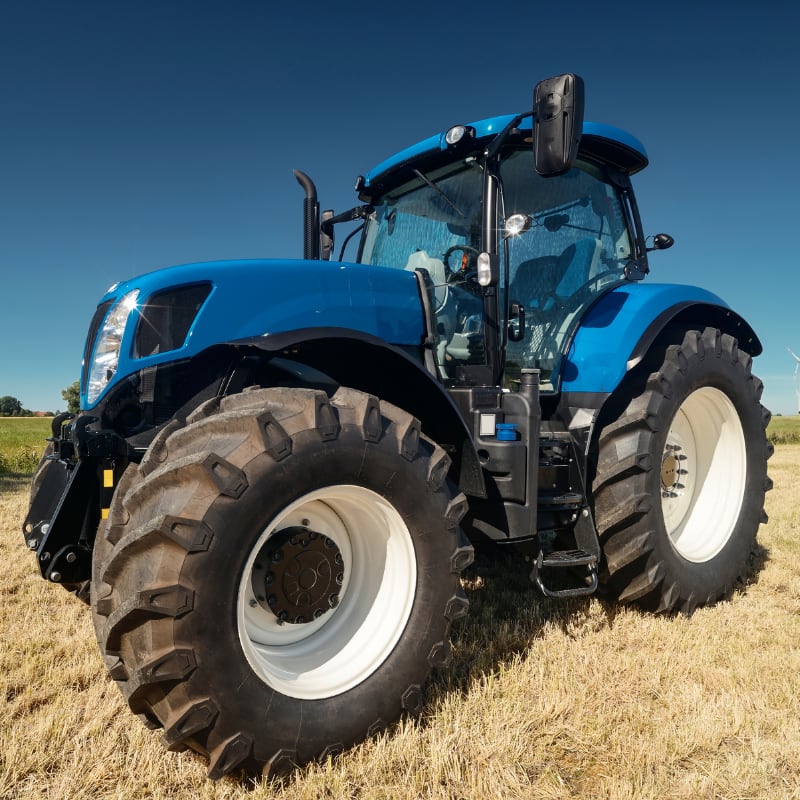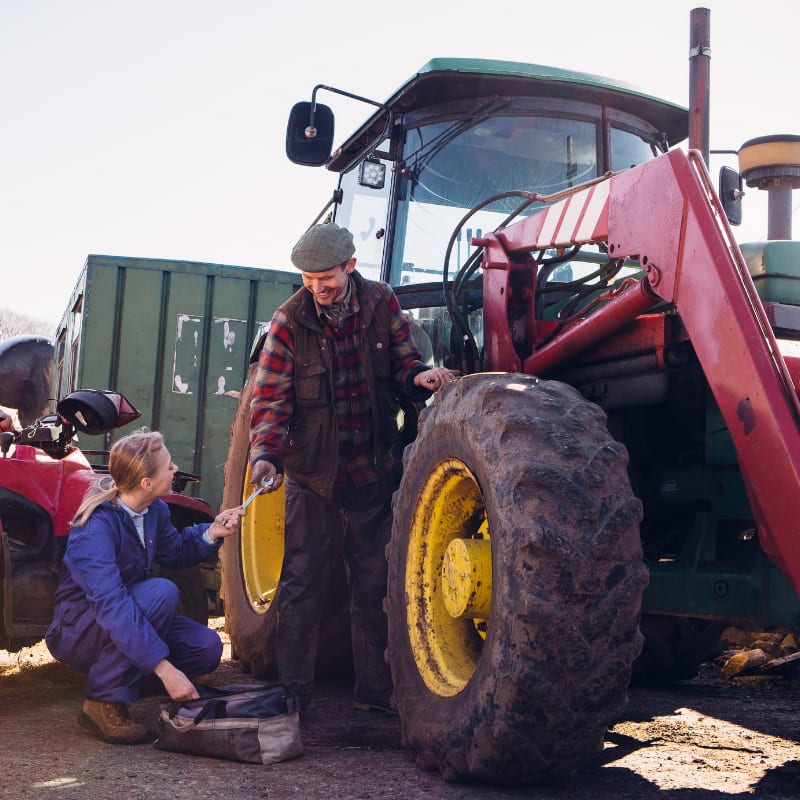Tractors are necessary pieces of farm equipment, and without them, you would be greatly inconvenienced. Can you imagine doing all that work by hand?
Tractor maintenance can be difficult because there are so many different parts that need to be maintained or adjusted at different times depending on the model of tractor you own. We're going to talk about some maintenance tips to keep your tractor in top shape! We talked to poultry farmer Jason Jackson as well as tractor experts from the 2021 Sunbelt Ag Expo to gather some simple ideas for proper maintenance.
Buying your Tractor
You may hear a tractor dealer say "buy once, cry once." Tractors can be expensive, but investing in exactly what you need for your operation is somewhat of a step zero for tractor maintenance.
If you have just the tractor you need, it will be more cohesive with your farm and naturally face fewer issues. This is a "fitting a square peg into a round hole" type of issue. Remember that with tractors, bigger isn't always better! Choose the tractor with the best function for you, and it will pay for itself in the long run.
Tractor Maintenance Checklist
According to the three people with whom we spoke about tractors, here are some things you can check on daily:
- Clear the dust out of your tractor after using it. You can use a handheld blower to blow clean air out around the the radiator cap, grills and air filter every day.
- Wash chicken litter off of moving components, including the tires, every day so it doesn't build up and inhibit the mechanics.
- Make sure air pre-cleaners and inner cleaners are clean. A dirty air filter means a dirty engine! If you put good air in, you will get good performance out.

One other thing we want to touch on here is the operator's manual. Many people just toss the owner's manual away immediately or put it in some remote corner, never to be found again. We know Google can answer most questions, but we highly recommend that you at least know where your operator's manual is in case an issue very specific to your tractor should arise.
Fluid Levels
Engine Oil
Check your engine oil level after every tractor use and top it off as needed. Do not let the engine oil dip below the minimum line on the stick! If it does, your engine will not be well lubricated and its parts will start grinding together, and you may get an overheated engine.
Engine oil obviously lubricates the internal parts of the engine from friction. Old oil loses its ability to reduce friction and becomes burned up. If the oil is jet black, then it is time for an oil change. Oil changes should be scheduled regularly and in accordance with your tractor's operating manual.
It's important to look for oil leaks of any sort to protect your engine from failure. If your start that tractor up with no oil, you could face some serious issues such as a thrown rod.
Hydraulic Oil
Hydraulic oil is essential for maintaining lubrication in the tractor's transmission.

Making sure this oil level is sufficient also protects the engine from overheating. You may as well check the hydraulic oil while you're checking the engine oil!
Filters
Air Filter
Changing air filters regularly is very important to tractor maintenance. When dirty, air filters can cause the tractor to lose power and put unnecessary strain on the engine. The engine needs to breathe as combustion is a combination of fuel, fire and air intake. A clogged air filter reduces power and acceleration.
A dirty air filter also causes a tremendous loss in fuel efficiency. Fuel is a pricey item on a farm, so conserve where you can with proper air filter maintenance.
Fuel Filter
Fuel filters are easy to change and very important. Clean fuel is vital to a smooth running engine. The fuel filter is responsible for removing fine particles that could clog injectors and cause misfires in the engine block. Fuel quality today is not what it used to be, so pay much closer attention to the fuel filter.
Common effects of a dirty fuel filter on a tractor are:
- Difficulty cranking the tractor or sitting in idle
- Misfires or backfires
- Stalling while operating
- Fuel system component failures
- Loud noises from the fuel pump
Oil Filter
A tractor's oil filter needs to be replaced at regular service intervals. As we stated earlier, engine oil is vital to reduce friction and wear in your tractor's engine. You often need to change the engine oil and the oil filter at the same time. Failure to change the oil filter can result in damage to the essential parts of the engine.
Electrical
Battery ties and battery cables should be reviewed often. Batteries leak and the battery acid is very corrosive. The acid can short out connection between the battery and the starter and be a source of pain. It is recommended that you check the battery terminals often to make sure that they are secure and free of acid. A slight disconnection can cause loss of firing the started altogether.
You should often check the black ground connection as well. A common issue for a tractor dashboard lighting up but nothing staring when the key is turned is the ground connection. The ground is the black wire that leads from the negative side of the battery terminal and ends on the tractor frame. Losing ground connection will stop a tractor cold and lead to a much shortened battery life.
Sadly enough chipmunks and rodents LOVE to chew the plastic shielding on wires and cables. If you have ever had a rodent eat through a wiring harness, you know the frustration. Pest control and prevention of unwanted in storage areas is a vital part of tractor maintenance.
Mechanical
Be sure to grease all moving parts as needed with a light oil or lubricant. A grease gun can help here, especially when greasing hard to reach parts like grease zerks. Also be careful not to over-grease, as this can be just as harmful as not having enough grease. Greasing more often with a little is better than greasing rarely with a lot of product.
Just like an automobile, pressure of your tractor tires should be checked regularly. Lack of proper tire pressure can cause your tires to blow out!
Many diesel tractors use DEF (diesel exhaust fluid) part of the emission system. If you use this type of fluid, you need to know how to handle and store it properly. Be sure to have dedicated equipment for it, cycle through diesel exhaust fluid regularly rather than keeping it for the next year. It won't work as well when it gets too old.

Proper Maintenance Pays Off!
Tractor maintenance can be expensive, but it won't wind up being nearly as expensive as a repair. If you take care of your equipment, it will take care of you!
If you have any questions about this video or suggestions for future Poultry Biosecurity topics, contact allen@southlandorganics.com or jason@southlandorganics.com. Check out our YouTube channel for more helpful videos on commercial poultry farming!






